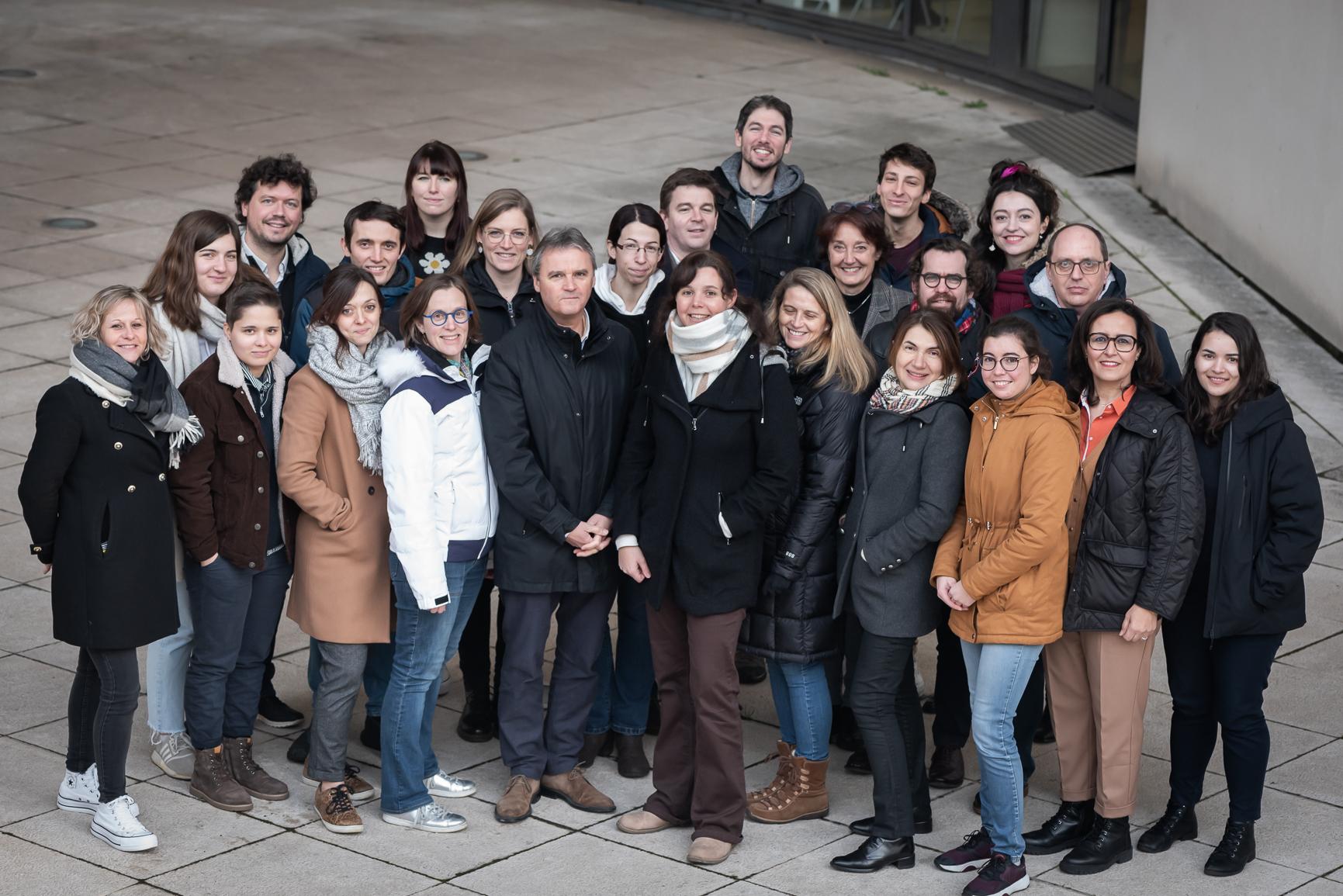Team 3 : Integrative transplantation, HLA, Immunology and genomics of kidney injury
Team 3 leaders: Pr. Gilles Blancho & Dr. Sophie Limou

Our team has a history of clinical data development (genomic and digital applications) and of translational research from bench to bedside (e.g. FR104 immunotherapy, OneStudy). We also lead local technological platforms that support our projects:

Research program
Team 3 results from the merging of two teams previously working in the field of transplantation and immunotherapy on the one hand and in the field of translational immunogenetics on the other hand. Our new Team 3 will develop complementary and integrative "wet-lab" and "dry-lab" strategies to improve the understanding of these complex pathophysiological mechanisms. Our main objectives are 1) to identify immunologic, genetic and HLA/immunogenetic determinants of kidney allotransplantation failure and of other immune-mediated kidney diseases, 2) to characterize the immunological role of unclassified human cell surface proteins and to define their potential as new targets for immunotherapies and 3) to integrate these findings in personalized clinical decision processes.Our team has a history of clinical data development (genomic and digital applications) and of translational research from bench to bedside (e.g. FR104 immunotherapy, OneStudy). We also lead local technological platforms that support our projects:
- The Large Animal Facility (LGA, Biogenouest label) where kidney transplantations in large animals are performed (G. Blancho & Julien Branchereau).
- The humanized rodents platform (incorporated in the Labex IGO) (F. Haspot).
- The recombinant protein and antibody production platform to produce several grams/year, enough to conduct research in large animals
1. Transplantation, immunogenomics and immunotherapies
We develop immunogenomic strategies for kidney transplantation in order to better define HLA and non-HLA incompatibilities between donor and recipient and to characterize the determinants of chronic graft rejection, such as HLA and non-HLA donor specific antibodies (DSA). Using animal models, we aim at pre-conditioning kidney grafts before transplantation to protect them against HLA DSA and other immune aggressions through various strategies, including accommodation. In addition, we study immune functions of uncharacterized human cell surface proteins (surfaceome), such as CD28H and SIRPgamma, in order to define their immunotherapeutic potential. Finally, data integration and machine learning will allow us to develop clinical scores and a personalized medecine application to guide the follow-up of transplanted patients.2. Nephrogenomics, integrative functional immunogenetics and immune-related kidney injuries
Our ambition is to promote in silico functional immunogenomics by statistically inferring knowledge from SNPs to better understand the immune mechanisms underlying kidney injury. In addition, we are working to better characterize the factors regulating trafficking of extracellular vesicles carrying miRNAs that damage the vascular endothelium during inflammation in ANCA-associated vasculitis (AAV), in order to investigate therapeutic strategies. Finally, we have recently started to develop nephrogenomics as a strategy to support diagnosis and discovery of new therapeutic targets for kidney injury (e.g. phosphate diabetes...)Clinicians / Associate Researchers
Research assistants
Sonia BOURGUIBA-HACHEMI - IR
Véronique DAGUIN - IE
Jérémy HERVOUET - TR
Bernard MARTINET - TECH
David MINAULT - IE
Mélanie NEEL - TH
Véronique DAGUIN - IE
Jérémy HERVOUET - TR
Bernard MARTINET - TECH
David MINAULT - IE
Mélanie NEEL - TH
Postdoctoral fellows
PhD students
Selected publications

Loss of DGKe induces endothelial cell activation and death independently of complement activation. Blood. 2015 Feb 5;125(6):1038–1046. PMID: 25498910
Anti-CD28 Antibody and Belatacept Exert Differential Effects on Mechanisms of Renal Allograft Rejection. J Am Soc Nephrol. 2016 Dec;27(12):3577–3588. PMID: 27160407
SNP-HLA Reference Consortium (SHLARC): HLA and SNP data sharing for promoting MHC-centric analyses in genomics. Genetic Epidemiol. 2020 Oct;44(7):733-740. PMID: 32681667
Association of HLA-DRB109:01 with tIgE levels among African-ancestry individuals with asthma. J Allergy Clin Immunol. 2020 Jul;146(1):147-155. PMID: 31981624
Regulatory cell therapy in kidney transplantation (The ONE Study): a harmonised design and analysis of seven non-randomised, single-arm, phase 1/2A trials. The Lancet. 2020 May;395(10237):1627–39. PMID : 32446407
Mis à jour le 29 octobre 2024.














